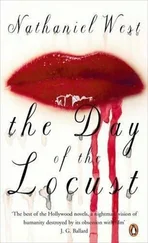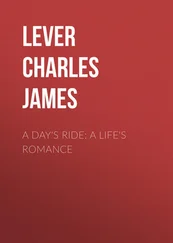As he went back down the ridge to get his horse, he could hear the people of the village gathering as the flames of the fire leaped higher into the dark sky. Leading the bay, Wolf made his way down to the bank of the river. Walking along the bank, he stopped at a slight rise in the bluffs that gave him an unobstructed view through the trees of the circle of dancers already forming. He decided at once that he was not likely to get a better spot to make his vengeance known, so he stepped up on his horse and gave it his heels. The bay started at once at a gallop. Wolf headed him back toward the ridge, letting him run for fifty yards or more before reining him back to a walk. Then he dismounted and led the horse back to the bank. He wasn’t sure how many shots he would be able to fire before the Lakota realized he was only one man and came after him, but he hoped they would be fooled into following his tracks back toward the ridge.
He was ready now. He checked his rifle to see that the magazine was loaded, then cranked a cartridge into the chamber. Kneeling next to a cottonwood tree to steady himself, he trained his sights on the growing circle of dancers, hesitating for a few seconds while he watched the Lakota warriors sing of their deeds of bravery and victory, most of them holding the fresh scalps taken in the raid. Still, he waited to select his first victim until one warrior, who was more demonstrative in his reenactment of his taking of a woman’s scalp, screamed out his war cry. With his front sight on the warrior’s chest, Wolf squeezed the trigger and sent a .44 slug to slam into the dancer’s breastbone, knocking him backward into the fire.
The initial reaction to the shot was one of startled confusion, with most of the dancers and spectators not sure what had just happened. Wolf took advantage of their confusion, cranking out three more shots while he still had stationary targets. It was only after three more of the dancers fell that the Lakota realized they were under attack, and the crowd scattered, seeking cover, but not until one more warrior was knocked to the ground as he tried to get on the other side of the fire. Moving quickly now to a different position in case his muzzle flashes had been spotted, Wolf searched for targets among the terrified people, passing up women and children, seeking warriors. One more clear shot and he decided he had retaliated in part for the cowardly attack upon his adopted village, and now thought it best to make his escape. Already he could hear sounds of a counterattack organizing. Calmer heads were bound to determine that their attacker was but one man firing a repeating rifle, and a furious mob of warriors would come charging across the river. Wolf did not plan to be there to greet them. He climbed on his horse and urged the bay into the water. Holding his rifle high in one hand, he turned the horse’s head downstream and followed the current away from the Lakota village.
In the darkness behind him, he could hear the warriors as they splashed across the river to the point where his muzzle flashes had been spotted. With the help of a flaming limb from the fire, one of them spotted the fresh tracks of a horse galloping toward the ridge to the east. Without hesitating, the warriors started out after it, never noticing the horse and rider swimming down the river under cover of the dark, moonless night.
The fact that his escape was taking him deeper into Lakota territory did not cause him to be overly concerned. He felt confident that he could avoid contact with the Lakota Sioux as well as the Blackfeet farther north. With Big Knife and his family gone, he had no real interest in returning to the Crow camp. Maybe he would in time, but for now he felt a stronger pull to the mountains around him, for he had always felt at home in the mountains. Without realizing it, all traces of his carefree, almost boyish enjoyment of life had disappeared, washed away with the flood of cruelty that swept through Big Knife’s village. His game of hide-and-seek with the Shoshone hunters had been no more than that, a boy’s game. The slaughter of innocent Crow women and children was the stark reality of the world in which he lived. He had coolly executed six Lakota warriors and there had been no sense of remorse or regret in his heart. His transformation to unyielding granite was now complete.
The next several years saw a restless odyssey through the mountains of Wyoming and Montana, hunting and trapping to buy the cartridges and supplies he needed, avoiding white settlements as well as most Indian villages. His contact with white men was restricted to the few trading posts he visited. This did not mean that he lived in a world apart from Indian and white man, for he knew where the Indians were, and he knew where the soldiers marched. Those facts were vital to his existence.
Even for a man with Wolf’s disdain for civilization, however, the notion to travel back to a place in time could tempt him after a while to return to see what had become of those he once knew in better circumstances. This was what prompted him to travel back to the Sweetwater and the Powder to find Big Knife’s old village. So he now sat, gazing into a campfire, earnestly regretting the decision. If he had not gone looking for the Crow village, he would not now be saddled with the responsibility of guiding three whores to Fort Laramie.
Deputy Marshal Ned Bull turned the red roan he rode toward the jail in Cheyenne, Wyoming Territory. Riding along behind him on a lead rope sat the sullen murderer Arlo Taggart, his hands tied behind him. The Cheyenne jail was a welcome sight to Ned’s eyes. He couldn’t turn his prisoner over to the sheriff soon enough to suit him. Arlo was one of three brothers who had raised enough hell down in the Nations to warrant a posse of U.S. deputy marshals to chase them out of Indian Territory into Texas, where they had seemingly disappeared for the better part of a year. A month ago, Arlo, the middle brother, surfaced again, this time in Ned’s jurisdiction when he robbed the Cheyenne bank, pistol-whipped one of the tellers, and shot the manager down when he bolted for the door. Although Arlo was alone on the bank job, Ned figured Beau and Mace were in the vicinity as well, but there was no way to tell for sure, because Arlo claimed they were still in Texas. If that was the case, then it would be the first time the boys worked on their own, so Ned felt sure the other two were close by. He was inclined to hunt for them, but the witnesses to the shooting said Arlo was alone, and when Ned trailed him to Clem Russell’s trading post on the North Platte River, he didn’t see any choice but to take him back to Cheyenne. The arrest was relatively simple, since he caught Arlo in bed with Clem’s Indian wife, Jewel, who practiced the ancient profession of prostitution. Arlo had a knot on his head and his hands cuffed before he knew what happened.
Ned pulled up to the hitching post in front of the jail and stepped down from the saddle. “Well, here you are, Arlo,” he said as he pulled the brooding outlaw from his horse, “safe and sound. I’ll see if we can find you a nice room with a view.”
“You go to hell,” Arlo snarled. “I ain’t gonna be in no jail for long.”
The big lawman smiled patiently at his prisoner. “I expect you’re right,” he said. “They’ll most likely hang you pretty quick.”
Arlo sneered. “I feel sorry for you, Marshal. When my brothers find out about this, your life won’t be worth two cents.”
“Why, I swear, that sure ’nough hurts my feelin’s. I thought you and me was gettin’ along just fine.” It was not the first time in a long career that the deputy marshal had been threatened. “Now, step up on the stoop there, and let’s check you into the sheriff’s hotel.” He gave Arlo a nudge between the shoulder blades with the muzzle of his Winchester ’73.
Читать дальше











